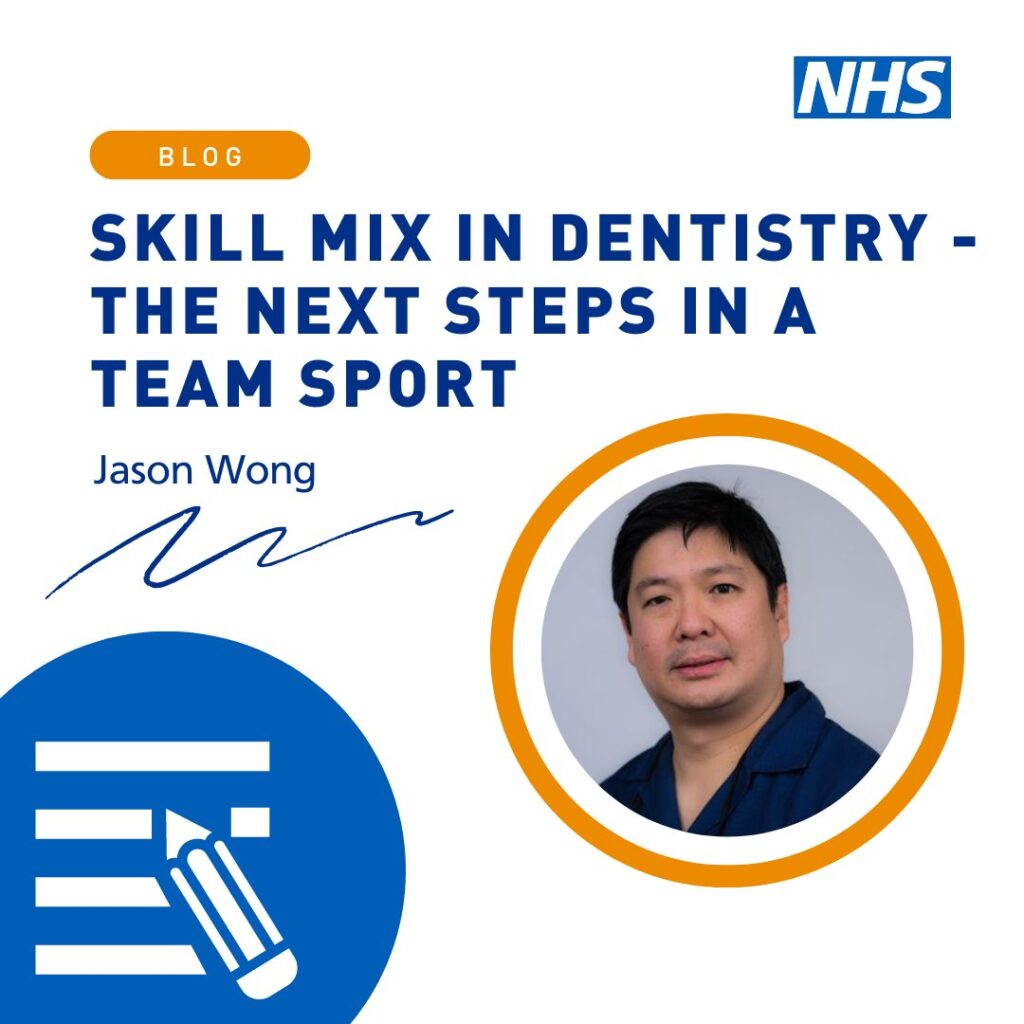England– Dental hygienists and dental therapists are to be able to work under the direct access ruling as part of NHS working.
Author: Fiona Ellwood
Refering back to the systems approach recently discussed on the OCDO England webinar the OCDO in England has advised that direct access is now possible in the wider dental settings. Until now guidance has indicated that direct access was only permitted in the private setting.
Towards the end of 2022, it was becoming clear that some dental team members were going to be permitted to work to their full scope of practice, without patients needing to see a dentist first and being presescribed to. This of course, whilst the term DCP is widely applied is currently only associated with dental hygienists and dental therapists. There was an indication that the role of the dental nurse may well be part of the broader picture too.
In the meantime it is important that dental nurses are aware of what this means for them, when working with dental hygienists and dental therapists in this capacity. Although the Society has sought additional guidance on some matters with the General Dental Council, discussions have been held around the publication from NHS England on the 11th Jan 2023 and which has since been updated as of 16th Jan 2023. Please follow the link: https://t.co/U7yTjgJQYw

Dental nurses need to be aware of who can do what, who can request or refer to them and understand the key principles of what it means for dental hygienists and dental therapists to undertake direct access, form an ethical and legal position and supporting them when referral systems need to be managed should patients need to be referred on. This is likely to happen if the patient presents with treatment needs that are either outside of their scope of practice or they do not feel confident, competent or trained to undertake the clinical procedure.
It is important that dental nurses are aware that dental hygienists and dental therapists are not required to work under direct access and it should not be assumed that all will wish to. Whilst it is known that not all dental hygienists and dental therapists have the support of a dental nurse all of the time, inevitably as many will work under direct access, dental nurses will be in greater demand. Nobody said this was going to be easy, or a quick fix, but it will certainly contribute towards addressing access and inequalities matters. There is also likely to be an uplift in morale and perhaps retention.
SBDN are very aware that there are a number of matters to be ironed out and discussions are on-going between indemnity providers, NHS England, the General Dental Council (GDC) and the British Society of Dental Hygiene and Therapy (BSDHT) and British Association of Dental Therapists (BADT). Both BSDHT and BADT have worked hard to get guidance out to their members to date and SBDN have done the same on the back of Jan 2023 NHS England publications. This will cut accross the consent process and other operational factors, including the filling of additional sections on the FP17. It is likely to encourage different business models and potentially different remuneration models. Some dental hygieinsts and dental therapists may now embark on up-skilling if they have not been working to their full scope of practice for sometime, those qualifying prior to 2002 may need to obtain new skills if they wish to work to the full professional scope of practice within their profession.
This change in ways of working should be made clear to indemnifiers and does not negate the Human Medicines Act 2012 and therefore dentists currently remain the only registrants who can supply and administer the full range of prescription only medicines (POMS). This does mean that treatments such as whitening still require a prescription. The position remains the same on patient specific directions (PSDs) and patient specific group directions (PGDs) and whilst this is not a barrier to dental hygienists and dental therapists it has the potential to be a barrier for dental nurses (see the link) https://www.gov.uk/government/publications/patient-group-directions-pgds/patient-group-directions-who-can-use-them#who-can-supply-or-administer-under-a-pgd . This is something Fiona Ellwood has sort clarity on for many years, constantly questioning why the dental team cannot be added to the list with the words ‘within their scope of practice’ cited, there was no reason why this shouldn’t have happened in 2013. It must also be noted that Fiona also presented a proposal in the very early discussions of prescribing and exmptions for dental nurses in 2017, this was placed in category ‘C’, which was disappointing.
We look forward to being part of the discussions as skill-mix unfolds for the dental nurses and in turn the dental nurse education arena takes the changes on board.